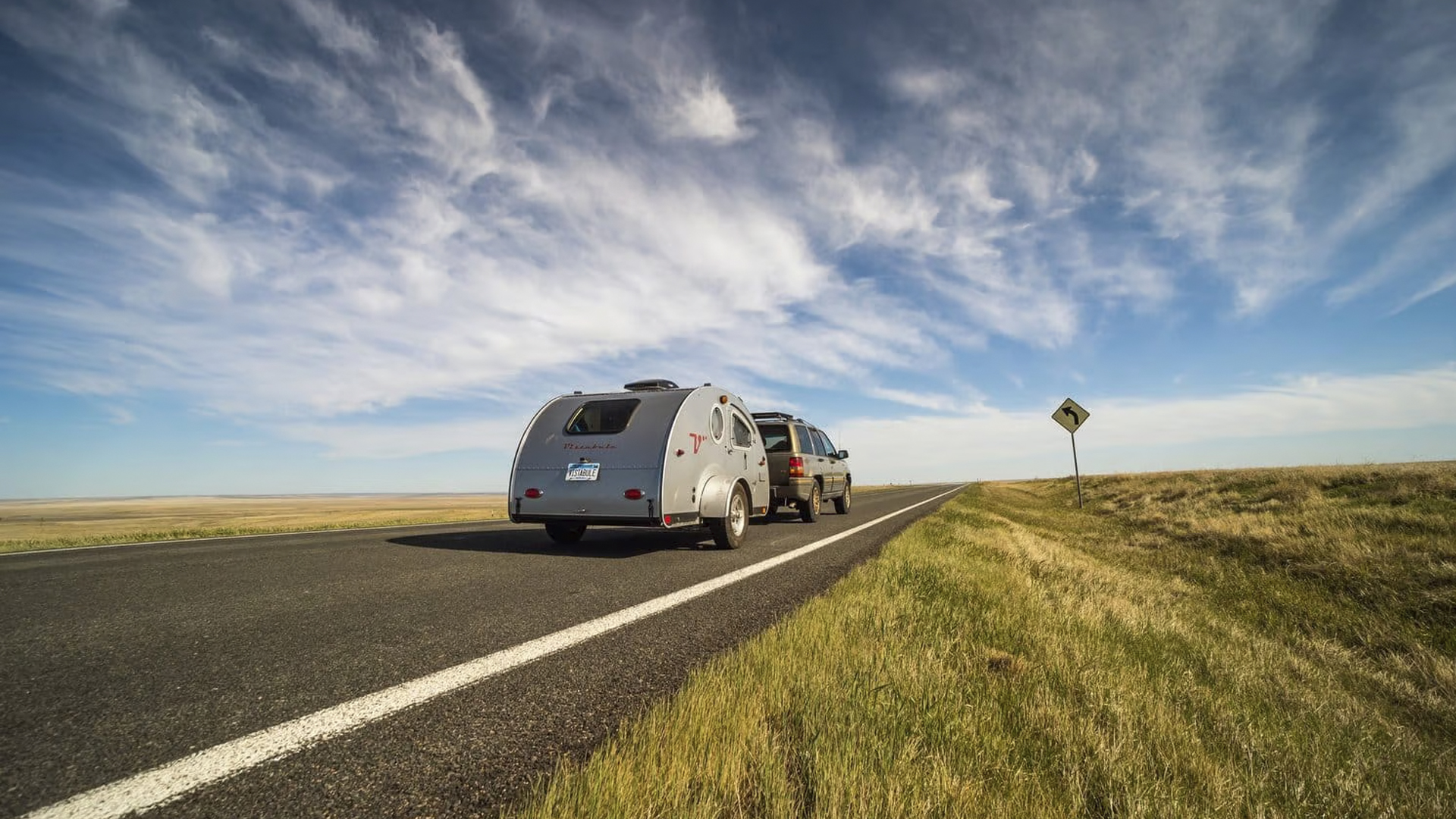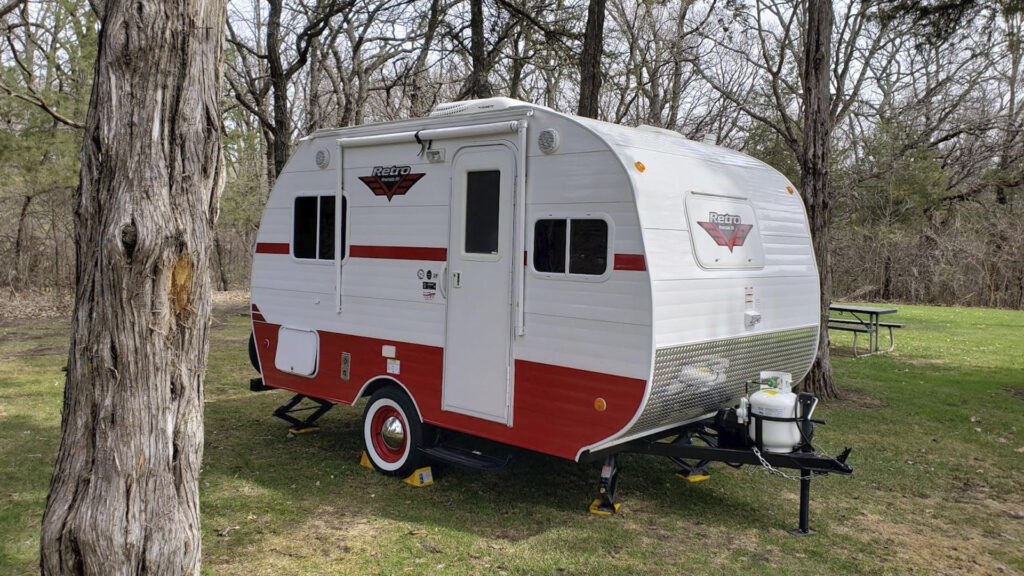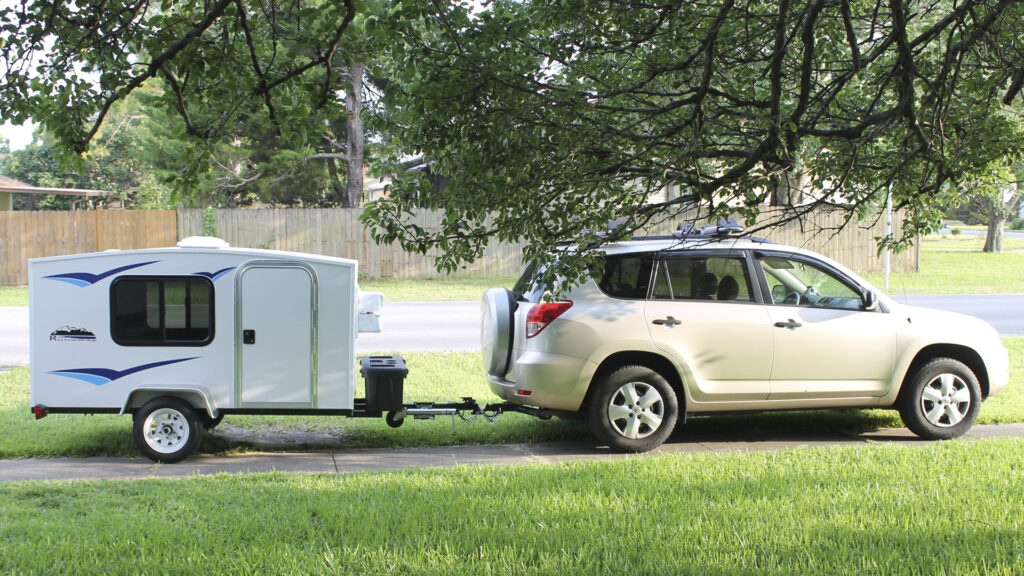
Average Camper Weight Guide: Weights by Type for Safe Towing
Table of contents
- Understanding Camper Weight Terminology
- Small Camper Options and Their Average Weights
- Medium to Large Camper Options and Their Average Weights
- Factors That Affect Camper Weight
- How to Determine Your Camper’s Actual Weight
- Risks of Exceeding Weight Limits
- Tips for Managing Camper Weight
- Enhance Your RV Experience with Custom Skirting for Maximum Protection and Comfort
- Related Articles
Understanding average camper weight is crucial for anyone considering a camping trip with a trailer. Whether you’re asking how heavy is a travel trailer, wondering how much does a 28 ft camper weight, or seeking insight into how much does a 20 ft camper weigh, this guide will help you choose the right camper for safe towing. Camper weights can vary significantly based on type, size, and features, which directly impacts your vehicle’s towing capacity, road safety, and overall travel experience.
Knowing camper weights helps prevent vehicle damage, ensures safe travel, and guarantees you’re using the right tow vehicle. This guide will break down average camper weights by type and explain important weight terminology that every camper buyer or traveler should know.
Understanding Camper Weight Terminology
Before diving into specific camper weights, it’s important to understand key weight-related terms. Knowing these terms will ensure that you’re fully aware of the weight limits and how they influence your towing decisions.
Dry Weight
Dry weight refers to the camper’s weight without any added cargo, water, or fuel. It’s essentially the base weight of the camper as it leaves the factory, which is often used as a reference point for comparing different models.
Gross Vehicle Weight Rating (GVWR)
The GVWR is the total weight of the camper when fully loaded, including passengers, cargo, fuel, and water. This is the weight limit that should never be exceeded to ensure safe towing and prevent damage to the camper and vehicle.
Cargo Carrying Capacity (CCC)
The CCC refers to the amount of weight a camper can safely carry in addition to its dry weight, such as personal items, food, or water. The CCC is important for ensuring that you don’t exceed the camper’s weight limit.
Tongue Weight and Hitch Weight
Both tongue weight and hitch weight refer to the weight placed on the towing vehicle’s hitch. It’s a critical measurement for proper weight distribution and towing safety, as the correct balance ensures the vehicle tows smoothly.
Small Camper Options and Their Average Weights

For those looking for compact options that don’t require heavy-duty towing vehicles, smaller campers are a great choice. Here are some common small camper options and their average camper weight ranges.
Teardrop Campers
Teardrop campers are ultra-lightweight, with an average weight range of 500 to 3,200 lbs. Factors that affect the weight of a teardrop camper include construction materials, size, and added amenities. The smallest models tend to be around 500 lbs, while larger models with additional features may weigh closer to 3,000 lbs.
Teardrop campers are ideal for vehicles with lower towing capacities. Cars, minivans, and small SUVs can typically tow these lightweight options without issue. How heavy is a travel trailer is often a question for those looking for something bigger than a teardrop, but these campers are an easy choice for smaller vehicles.
Pop-up Campers
Pop-up campers are another popular lightweight option, with an average camper weight of around 2,300 lbs. The collapsible design of pop-up campers significantly reduces their weight compared to larger trailers. This makes them perfect for those looking for a low-weight camper that can still offer comfort on the road.
While the dry weight is relatively low, it’s important to note that loaded weight can differ significantly due to added gear and water. For example, if you’re wondering how much does a 20 or 28 ft camper weight, it’s crucial to keep in mind that a pop-up camper will be much lighter, typically requiring less towing capacity. These campers are typically towed by mid-sized vehicles like SUVs and pickup trucks, making them a versatile option for many travelers. Additionally, if you’re comparing, how much does a 20 or 28 ft camper weight, you will find that pop-up campers are much easier to tow without the heavy load of larger models.
Small Utility and Camping Trailers
Small utility trailers used for camping range from 700 to 1,800 lbs when empty. These trailers are often used for carrying basic camping gear, and their average camper weight depends on whether they are open or enclosed. Their GVWR typically falls between 2,000 and 3,100 lbs, which provides additional capacity for loading.
These trailers are ideal for those who prefer a minimalist camping experience or need a lightweight option for towing behind smaller vehicles.
Medium to Large Camper Options and Their Average Weights

For those seeking more amenities, larger campers may be the right fit. These options come with higher average camper weights, requiring more substantial towing vehicles.
Travel Trailer
How heavy is a travel trailer? These are one of the most common types of campers and can vary greatly in weight, from 1,200 to 9,000 lbs. The average camper weight for a travel trailer is around 6,000 lbs. Factors such as the length, construction, and added amenities affect travel trailer weigh.
For example, how much does a 20 or 28 ft camper weigh typically falls in the range of 6,000 to 7,500 lbs. On the other hand, how much does a 20 ft camper weigh usually hovers around 3,000 to 5,000 lbs, depending on its design and features.
The GVWR of travel trailers often ranges around 8,500 lbs, so it’s important to ensure your vehicle can handle the full weight. Travel trailers require towing vehicles with sufficient towing capacity, like larger SUVs or pickup trucks.
Fifth Wheel Camper
Fifth wheel campers are known for their heavy construction, with an average camper weight of around 12,700 lbs. These campers offer a more stable and spacious towing experience due to their unique hitch design, which places the weight directly over the truck’s rear axle.
Because of their weight, fifth wheels require larger towing vehicles such as heavy-duty trucks. They are popular among those looking for high-end features and ample living space on the road.
Toy Haulers
Toy haulers are a unique type of travel trailer designed to carry recreational vehicles such as motorcycles, ATVs, or dirt bikes. These campers are heavier, with an average camper weight ranging from 3,600 to 11,400 lbs. The addition of a garage section adds significant weight to the camper, making them one of the heaviest options available.
How much does a travel trailer weigh compared to a toy hauler depends on the specific model. Smaller toy haulers might weigh around 5,000 to 7,000 lbs, while larger models can easily exceed 10,000 lbs, requiring a powerful towing vehicle. If you’re wondering how much does a 20 or 28 ft camper weight, it can vary, but toy haulers of this size are typically on the heavier side due to their design and added features. For example, when asking how much does a 20 or 28 ft camper weight, you might expect it to be closer to the 7,000-9,000 lbs range depending on the layout and amenities included.
Factors That Affect Camper Weight
Several factors can affect a camper’s weight, whether you’re considering a small teardrop or a large fifth wheel.
Construction Materials
The materials used in camper construction can significantly affect weight. Aluminum is lighter than steel, while fiberglass is often heavier than wood. A camper built with lightweight materials may weigh considerably less than a similar model constructed from heavier materials.
Amenities and Features
How much does a travel trailer weigh is also influenced by the amenities included in the design. Features like air conditioning units, slide-outs, and generators all add weight. The more luxurious the camper, the heavier it will be. For example, a basic model might weigh 5,000 lbs, while a fully loaded version with all the amenities could push that figure to 7,500 lbs or more.
Water and Fuel Weight
Water and fuel add significant weight to your camper. A gallon of water weighs approximately 8.3 lbs, and a full freshwater tank can add hundreds of pounds to your total weight. Managing water weight is important, and many travelers choose to refill their tanks on-site rather than hauling full tanks during travel.
How to Determine Your Camper’s Actual Weight
To ensure your camper is within safe towing limits, it’s essential to weigh it accurately. How much does a 28 ft camper or travel trailer weigh or any camper type can be determined by visiting a weighing station, such as a CAT scale or RV dealership, to weigh your camper fully loaded. The cost is typically around $60-$90, but it’s a small price to pay for safety and accuracy.
Risks of Exceeding Weight Limits
Exceeding your camper’s weight limit can have severe consequences. Overloading can lead to tire blowouts, suspension damage, brake failure, and reduced fuel efficiency. So, how heavy is a travel trailer can play a crucial role in your towing capacity. Additionally, towing an overweight camper increases the risk of accidents on the road. How heavy is a travel trailer in comparison to your vehicle’s towing capacity? Always ensure you’re towing within your vehicle’s limits to prevent these risks.
Tips for Managing Camper Weight
To reduce the risk of exceeding weight limits, consider the following tips:
- Pack only essentials.
- Use lightweight materials for camping gear.
- Remove unnecessary items from the camper.
- Manage water weight by filling tanks only when necessary.
By understanding the average camper weight, you’ll make better decisions for your towing safety and overall camping experience. Whether you’re asking how much does a 20 or 28 ft camper or travel trailer weigh, knowing these details helps ensure a successful trip.
Enhance Your RV Experience with Custom Skirting for Maximum Protection and Comfort
Are you a new RV buyer researching camper sizes? Don’t let your investment go unprotected! With the right custom skirting, you can keep your RV insulated, stable, and adventure-ready no matter the weather. Experience the nation’s #1 RV skirting solution — our “No-Snap, No-Gap” channel system seals out water, snow, and wind, offering superior protection for your RV.
Our custom-tailored skirting is designed to fit your RV perfectly, ensuring flawless installation and durability through the harshest conditions. With over a decade of testing and improvements, this skirting has been trusted by RV enthusiasts across the northern United States and Canada.
Protect your new camper and enjoy your adventures with confidence! Get your custom skirting today and experience the difference for yourself.
